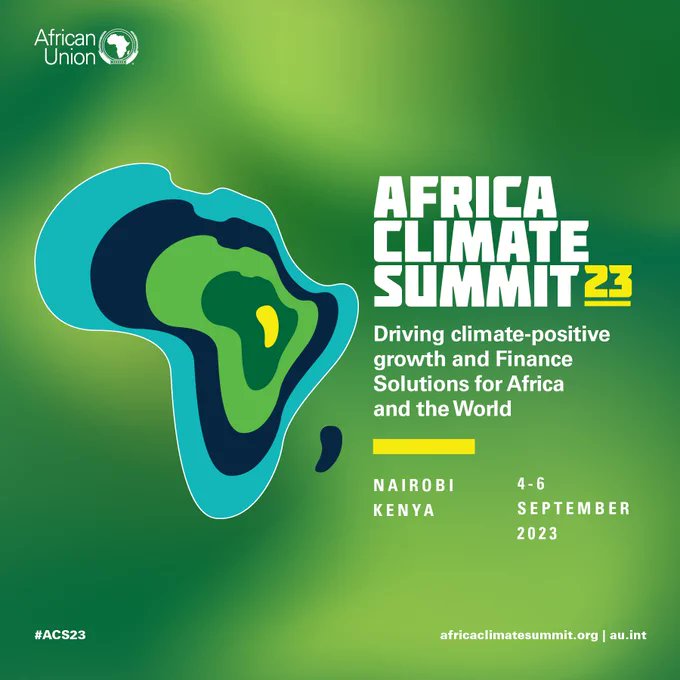|
Getting your Trinity Audio player ready…
|
Wanjira Mathai – Managing Director for Global Partnerships and Africa, World Resources Institute
This is the inaugural Africa Climate Summit, we are coming together to chart a common narrative and pathway of our position on the climate crisis, which must be grounded in justice for our people. We must seize our chance to transform people’s lives and livelihoods throughout the continent, setting concrete actions.
It is up to us not only to be part of the climate debate but to lead it. Make no mistake. Africa has historically produced so few greenhouse gases in comparison to Europe and the U.S., yet we are disproportionately bearing its consequences. We need an African response to this international crisis, that is anchored in the principle of common but differentiated responsibility.
It is essential we come together with a common purpose—civil society, businesses, and governments—to ensure our needs are front and center in ongoing negotiations, here in Nairobi at the Africa Climate Summit, Africa Climate Week, and later at COP 28 in Dubai.
For us, this is a moment like no other, because it is the difference between life and death. The recent IPCC report set out clearly that Africa is warming faster than the rest of the world, at a pace that is hard for communities to keep up with, we must therefore lead the transformation.
The Summit is a battering ram that is giving us new agency that has opened up new spaces for discussion and dialogue to sharpen our vision for Africa’s transformation. Africa is home to the solutions, but for Africa, and the world, to thrive, wealthy countries’ commitments to deliver finance on adaptation, loss, and damage must be delivered. We cannot let the promise of climate finance, including the previous and unmet annual commitment of $100 billion (per year from 2020 to 2025) be ignored. Africa needs $579 billion this decade to adapt.
If wealthy governments deliver this finance it will bring jobs and in turn dignity, self-reliance, and a livable future to underserved and under-developed regions throughout the continent. For instance, our smallholder farmers, who have tried and trusted on-the-ground solutions for building healthy farms and forests, with the right injection of public and private investment, could be scaled to landscape the Congo basin and then throughout the different ecosystems on the continent. These are solutions that build lasting resilience, and as Africans, we must use our collective fora to advance our common position, across our different platforms.
Our dedication and in particular from civil society to making lives better does not absolve the global north from its historic and current responsibilities, by reneging its legal commitments and moral obligations. All of these issues should be on the table at the Africa Climate Summit, and I’ll be there advocating for justice for Africa, on the basis of common but differentiated responsibility.
We must use this opportunity to shape a common vision for Africa, through a dialogue that builds on His Excellency President Ruto’s vision for Africa’s Green, Climate-Positive Economic Growth. So, pay close attention to what happens at the Africa Climate Summit.
That means wealthy countries delivering on their climate finance promises, capitalizing on our abundance of our continent’s renewable energy, responsibly leveraging our critical minerals, and supporting our young people in leading the way. Africa is well positioned to be a global leader in addressing the climate crisis and in doing so, improving the lives of our people.
Presiding over the Africa Climate Summit should be the spirit of ubuntu, that uniquely African concept that recognizes that the identity and destiny of each of us are wrapped up in the identity and destiny of all. That’s certainly the case when it comes to the climate crisis, where no matter where you live in the world, the consequences of atmospheric and oceanic heating—catastrophic floods, crippling droughts, more powerful and frequent hurricanes, and the displacement of tens of millions of people as a result—are affecting everyone, rich or poor. The truth is that if we don’t act on this global problem, those disasters will only continue to occur with greater intensity and more often. They already are. That’s more land lost to water, more water lost to land, more farms going under, and food and lives lost.
Our continent can demonstrate leadership in being the future of climate adaptation, generating renewable energy, sustainably leveraging its critical minerals and natural resources, and unleashing the vitality and entrepreneurship of our vibrant, youthful population.
As the climate crisis worsens, we have the most to lose. This is why we must come together at the summit and collectively move forward through the ambition of the Summit, demonstrating our ambition in September at the General Assembly, COP 28, and beyond.
It is a matter of Ubuntu and Justice.
Here’s the bottom line. We cannot adapt against abject poverty and therefore building lasting resilience is about lifting people out of it and giving them a chance to break cycles of generational poverty once and for all.
This is a truly special African moment.
